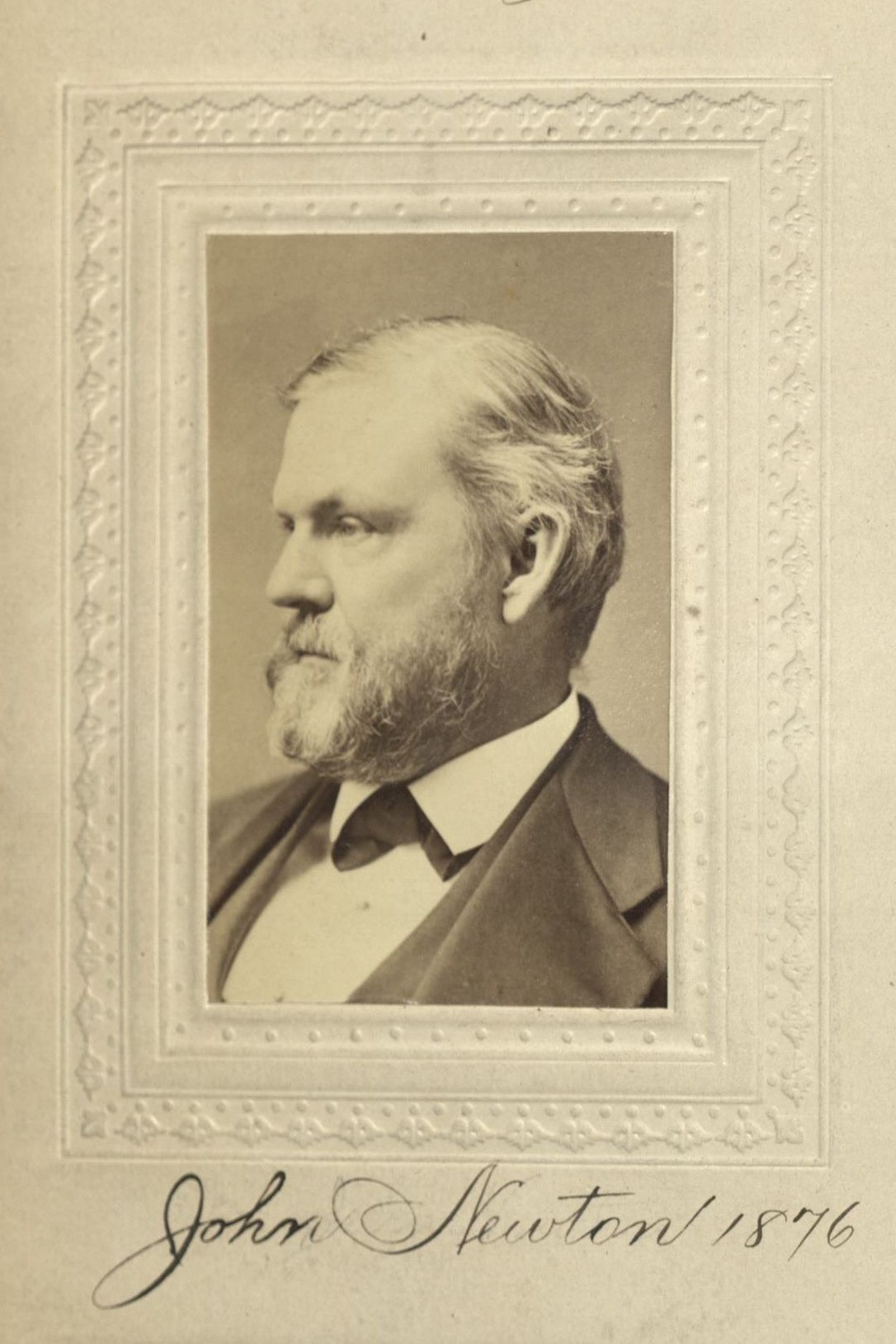Army Officer/Civil Engineer
Centurion, 1877–1895
Born 24 August 1823 in Norfolk, Virginia
Died 1 May 1895 in New York (Manhattan), New York
Buried United States Military Academy Post Cemetery , West Point, New York
, West Point, New York
Proposed by Samuel B. Ruggles and George W. Cullum
Elected 3 February 1877 at age fifty-three
Archivist’s Note: He resigned in 1883 and was reinstated in February 1887 with a new set of proposers, George Sears Greene and G. W. Cullum.
Century Memorial
John Newton was a soldier whose record of service covered nearly fifty years, which was noted for loyalty, ability and marked distinction. Like that of all American officers, his service embraced the whole country in its sphere, and involved varied responsibilities from the different character of his commands.
Graduating at West Point in 1843 he was assigned to the Corps of Topographical Engineers, and passed from instruction at the Military Academy to construction of military works in all parts of the country, to active service in the Utah campaign, and finally to the great Civil War, where his gallant, conspicuous and continual service won him the rank of Major-General of volunteers, and a brevet as Brigadier-General in the regular army, honors which were well deserved; for it was not the lot of many officers to have fought as he did on the bloody fields of the Peninsula, Antietam and Fredericksburg—where he led the successful storming party on Marye’s Heights—Chancellorsville, Gettysburg—where he succeeded General Reynolds, who fell in the first day of the battle—in the advance of Sherman on Atlanta, and in the desperate actions that preceded its capture.
With the return of peace, he superintended important engineering works, the last and most important of which was the clearing of Hell Gate in the East River; and later he served the city with marked ability as Commissioner of Public Works. Since his retirement from office he has been at the head of important corporations, which he conducted with the ability so characteristic of him.
He was a fine type of the American soldier, loyal to his flag, though of Southern birth, modest in his bearing, and faithful in the discharge of his duty, however arduous and wherever it called him.
Henry E. Howland
1896 Century Association Yearbook

